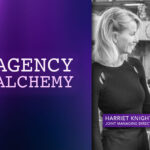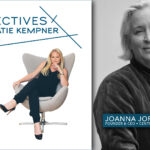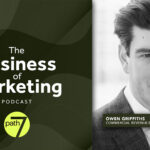The cost-of-living crisis will force a third of Brits to cut back on their household spending this year, according to research by KPMG. So, in a world where consumers can only justify spending their hard-earned cash on the brands they love – why should they choose yours? Mike Foster, founder and strategic creative director at Straight Forward, explores how brands can take action to spark emotional connections in an era of uncertainty.
In the face of the growing list of converging global crises: Covid-19, increasing economic insecurity, systemic racism, climate change, and the war in Ukraine, brands that take a stand and do the right thing can turbo-charge their trust.
This year, the cost-of-living crisis will force one in every three British households to cut back on their spending. Of those, 45% said they would look to spend less on their weekly food and drink shopping, according to research by KPMG.
No surprise when you consider that Brits are set to face the steepest drop in real-terms income for 50 years, says Resolution Foundation analysis. As energy bills increased by 50% overnight on 1st April, in the same week, National Insurance contributions rose by 10%. Price hikes are everywhere, with grocery prices having risen at their fastest pace in more than eight years during February, hitting 4.3%. according to market analysts Kantar.
But despite or perhaps because of, the state of the world, consumers’ quest for entertainment and escapism, health and wellbeing and to participate in life, has not waned. People want to share feelings of joy and a sense of togetherness again and brands have the power to provide it.
Consumers crave deeper connections with the brands they love and trust. In turn, brands must seek new and better ways to cut through noise to engage with their audience on a deeper level. From neuromarketing techniques, such as calculating levels of immersion by measuring heart rate variations on a smart watch, to metaverse events that provide a break from the mundane, brands are keen to reconnect.
During the pandemic, whether through choice or necessity, brands became creatively braver. Lockdowns brought habit changes and meant that audiences were more open to change than ever before. The knock-on effect is that uncertainty has shifted what people know and expect from brands.
Are You Paying Attention?
Now, forward-thinking brands and agencies must build on these new foundations, creating relationships that better reflect the world we live in today. For example, consumers are four times more likely to buy if a brand addresses human rights, four times more likely if it speaks out on systemic racism and three and half times more likely to buy if it takes on economic inequality, says Edelman’s Trust Barometer.
This evolved role for brands presents new opportunities for marketers but danger if they fail take up consumers’ cry for action. The reality, says Edelman, is that highly trusted brands are seven times more likely to be purchased.
Being close to what audiences want, think and feel is essential to remaining relevant and successful. Today, brands have access to more data on consumers’ wants and needs than could have been conceived 20 years ago. With such vast swathes of information, the challenge for brands is to understand trends without losing sight of consumers as individuals, which can help forge a more prominent and positive presence in the mind of their audience. A granular understanding of an audience can also unlock opportunities for new product development.
Do the Right Thing
It has paid off for brands such as Calpol, which has consistently launched variations of its main product, such as a sugar-free version and a tablet form, Fast Melts. But one such offshoot presented issues for the brand. Calpol Night* was launched in 2007 for children aged two years and up, explicitly to aid sleep with added antihistamine. However, in 2009 the UK’s medicines regulator, the MHRA, ruled it should no longer be given to children under six. Even though maker Johnson & Johnson could have continued to market it for older children, it quietly withdrew Calpol Night from shelves in 2010.
The episode demonstrated the unwillingness of the brand to tarnish its reputation with any sliver of doubt in the consumer’s mind building on trust with clear action. Even if it meant losing sales, the brand had to remain beyond impeachment, had to be seen to do the right thing.
Other brands of liquid paracetamol may cost half the price but Calpol** has proven its ability to diversify, and to be trusted, which has meant that consumers have been happy to follow it for decades: it has 70% of the market for children’s pain-relief medicine; three times the share of its nearest competitor.
When consumers trust a brand to get the job done, they are willing to invest extra cash. So, in a world where brands can be anything, being loved and trusted is what keeps their names on the household shopping list, even in times of economic hardship. Proof that sparking emotional connections should be at the heart of any brand strategy.
Source:
* The Guardian – Why parents are addicted to Calpol
** Grocery News from the Grocery Trader Magazine
Agency Synopsis
Straight Forward is an independent, global and passionately creative brand design agency.
Working all over the world they help brand owners join the dots between insight, strategy and bold brand design to create meaningful connections between brands and people that drive long-term growth. They do this by using their powerful methodology, Connect in Full™.
From their studio in London’s Fitzrovia they work with a diverse range of clients including Mars, Bayer, Danone, PepsiCo, Hostess and Gigi.
Straight Forward believe in values-based leadership and place the needs of people at the heart of everything they do.
Follow Straight Forward Design online, on LInkedIn, Twitter and Instagram.






